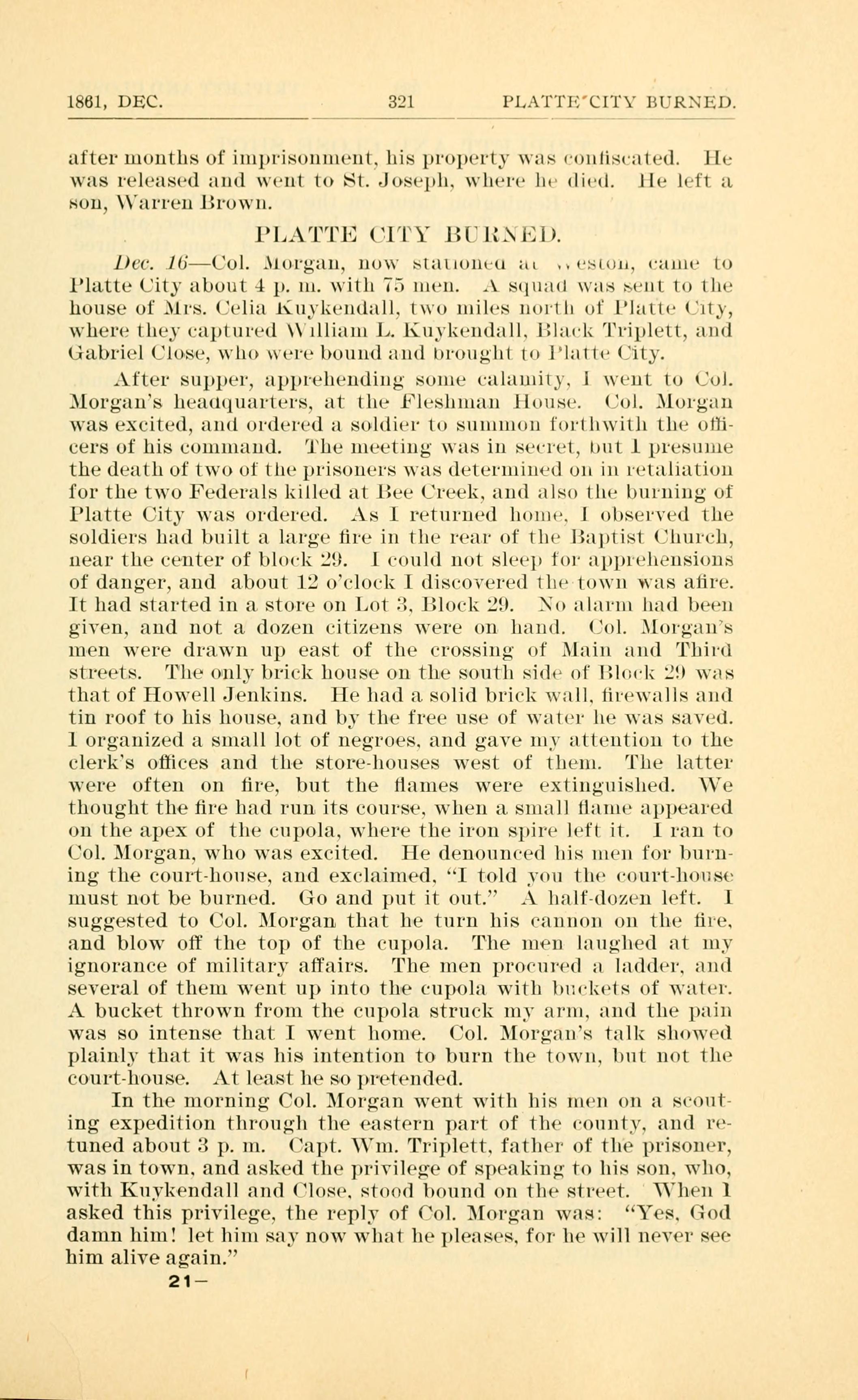Annals of Platte County, Missouri - Paxton
[previous page] [next page]

[previous page] [next page]
1861, DEC. 321 PLATTE CITY BURNED after months of imprisonment, his property was confiscated. he was released and went to St. Joesph, where he died. He left a son, Warren Brown. PLATTE CITY BURNED Dec. 16 - Col. Morgon, now stationed at Weston, came to Platte City about 4pm with 75 men. A squad was sent to the house of Mrs. Celia Kuykendall, two miles north of Platte City, where they captured William L. Kuykendall, Black Triplett, and Gabriel Close, who were bound and brought to Platte City. After supper, apprehending some calamity, I went to Col. Morgan's headquarters, at the Fleshman House. Col. Morgon was excited, and ordered a soldier to summon forthwith the officers at his command. The meeting was in secret, but I presume the death of two of the prisoners was determined on in retaliation for the two Federals killed at Bee Creek, and also the burning of Platte City was ordered. As I returned home, I observed the soldiers had built a large fire in the rear of the Baptist Church, near the center of Block 29. I could not sleep for the apprehensions of danger, and about 12 o'clock I discovered the town was afire. It had started in a store on Lot 3, Block 29. No alarm had been given, and no a dozen citizens were on hand. Col. Morgan's men were drawn up east of the crossing of Main and Third streets. The only brick house on the south side of Block 29 was that of Howell Jenkins. He had a solid brick wall, firewalls and tin roof to his house, and by the free use of water he was saved. I organized a small lot of negroes, and gave my attention to the clerk's offices and the store-houses west of them. The latter were often on fire, but the flames were extinguished. We thought the fire had run its course, when a small flame appeared on the apex of the cupola, where the iron spire left it. I ran to Col. Morgan, who was excited. He denounced his men for burning the court-house, and exclaimed, "I told you the court-house must not be burned. Go and put it out." A half-dozen left. I suggested to Col. Morgan that he turn his cannon on the fire, and blow off the top of cupola. The men laughed at my ignorance of military affairs. The men procured a ladder, and several of them went up into the cupola, with buckets of water. A bucket thrown from the cupola struck my arm, and the pain was so intense that I went home. Col. Morgan's talk showed plainly that it was his intention to burn the town, but not the court-house. At least he so pretended. In the morning Col. Morgan went with his men on a scouting expedition through the eastern part of the county, and returned about 3pm. Capt. William Triplett, father of the prisoner, was in town, and asked the privilege of speaking to his son, who, with Kuykendall and Close, stood bound on the street. When I asked this privilege, the reply of Col. Morgan was: "Yes, Goddamn him! let him say now what he pleases, for he will never see him alive again"